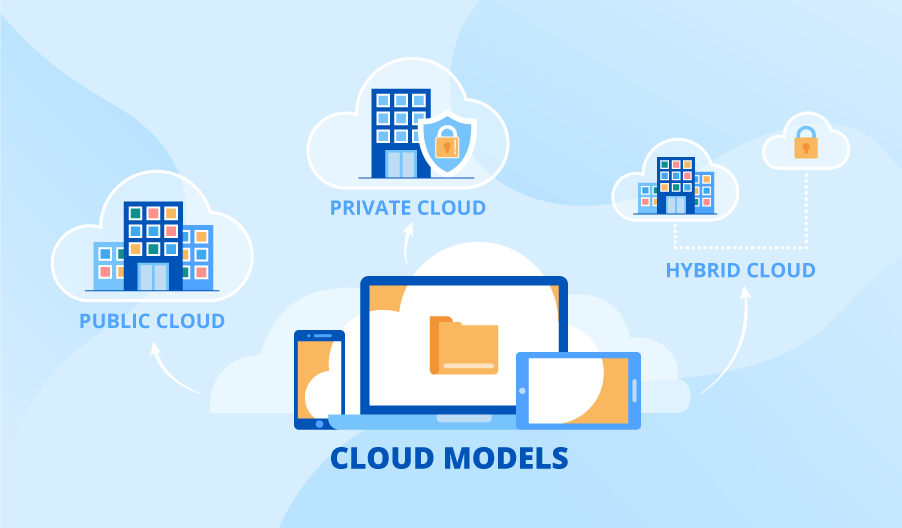The cloud provides on-demand computing resources, the option to scale up or down as needed, and the freedom to pay only for what you need. But if you’ve been working in the cloud for a while, you know that last bit isn’t always easy.
Cloud computing is being used by businesses to scale their operations more than ever before. However, without adequate cloud optimization, organizations may incur additional expenditures, fail to fulfill performance requirements, and even face security issues. This post will look at ways to optimize your cloud environment, best practices for cloud computing platforms such as AWS, and accessible tools and services.
Why Is Cloud Optimization Important?
Cloud optimization is critical for firms seeking to scale while reducing cloud expenditures. Cloud cost optimization is an important part of a successful cloud optimization plan, but it is not the primary focus.
Cloud optimization includes steps to increase software quality, cross-team collaboration, application performance, and continuous feedback throughout the organization. When migrating to the cloud, a solid cloud optimization strategy can assist assure an immediate and long-term return on investment. It also aids in the development of developer productivity and the migration of company activities from on-premise to cloud environments.
If as a business you don’t have the expertise then it’s better to hire some consultants. Cloud optimization services helps organizations that want to scale while reducing cloud costs and eliminating waste. It can assist in determining the most efficient method to allocate cloud resources across diverse use cases, reducing expenditures, improving insight into spending, and increasing cloud resource utilization. It can also help organizations forecast and report spending to leadership teams more accurately.
These advantages are primarily related to cloud cost optimization, which is an important component of an efficient cloud optimization strategy but is not the entire focus.
Why is cloud cost optimization important?
Optimizing cloud expenses is a continuous strategy with numerous benefits, ranging from a more cost-effective cloud infrastructure to a more competitive firm.
- Reduce your spending: Without diligent management, cloud costs can become a budget blackhole. Prioritizing cloud cost optimization means that needless spending is eliminated, freeing up funding for other critical business areas such as product development and hiring.
- Maintain resource efficiency: Rightsizing your resources, ensuring you’re not over-provisioning, and paying for unused capacity are all part of effective cloud cost optimization. You will pay for what you require when you require it.
- Gain control and predictability over your spending: A well-planned cloud budget is predictable. Effective cost-cutting techniques will help you to correctly anticipate your cloud expenditure, eliminating surprises and allowing for better strategic planning.
- Increase openness and oversight: While cost reporting, the cloud cost optimization process provides improved visibility into where and how your cloud budget is being spent. This level of comprehension can increase accountability while harmonizing your technology and business goals.
- Maintain your competitive advantage: With resources used efficiently and costs under control, you can focus on innovating as a firm and shortening your time to market—whether that’s product roadmap prioritization or experimenting with marketing ideas that convert customers.
Performance Optimization Techniques
- Caching: Caching is the practice of storing frequently visited data in memory in order to reduce latency and increase application performance.
- Database optimization: Database optimization entails enhancing database performance by improving query efficiency, indexing, and database design.
- Network optimization: Network optimization entails improving network performance by lowering latency, increasing capacity utilization, and establishing content delivery networks (CDNs).
Implementing these strategies can assist to speed up apps and improve user experience, resulting in increased customer satisfaction and income for enterprises.
Why is Cloud Optimization Necessary?
Cloud optimization enables businesses to properly manage and configure their resources, obtaining the greatest possible performance, cost, and security. Organizations may save money, enhance performance, and minimize risk by optimizing cloud utilization while operating apps and workloads on the cloud. Right-sizing resources, leveraging cloud-native applications, automating cloud management activities, and monitoring cloud consumption are all examples of cloud optimization strategies.
Because cloud optimization is an ongoing process that must be updated as technology advances and business demands change, staying current with the shifting landscape is critical to maximizing the benefits of cloud computing while minimizing the hazards associated with it.
Conclusion
Cloud optimization has become critical for businesses in today’s digital age to increase performance, cut expenses, and maintain security.
Businesses can optimize their cloud infrastructure by applying cost-cutting measures like rightsizing, load balancing, and auto-scaling, as well as detecting and reducing under-utilized resources and boosting performance with caching and databases.
Follow Technoroll for more!






